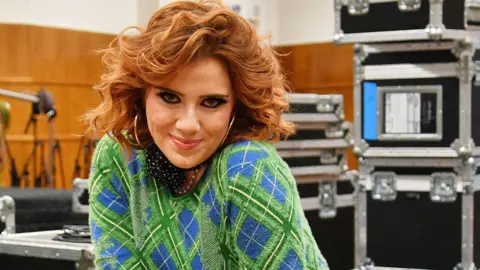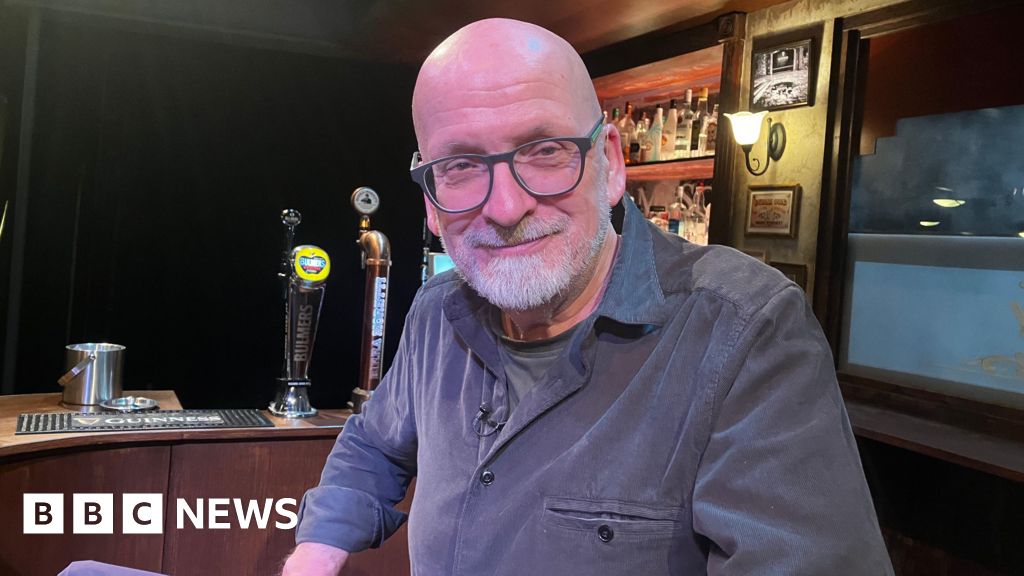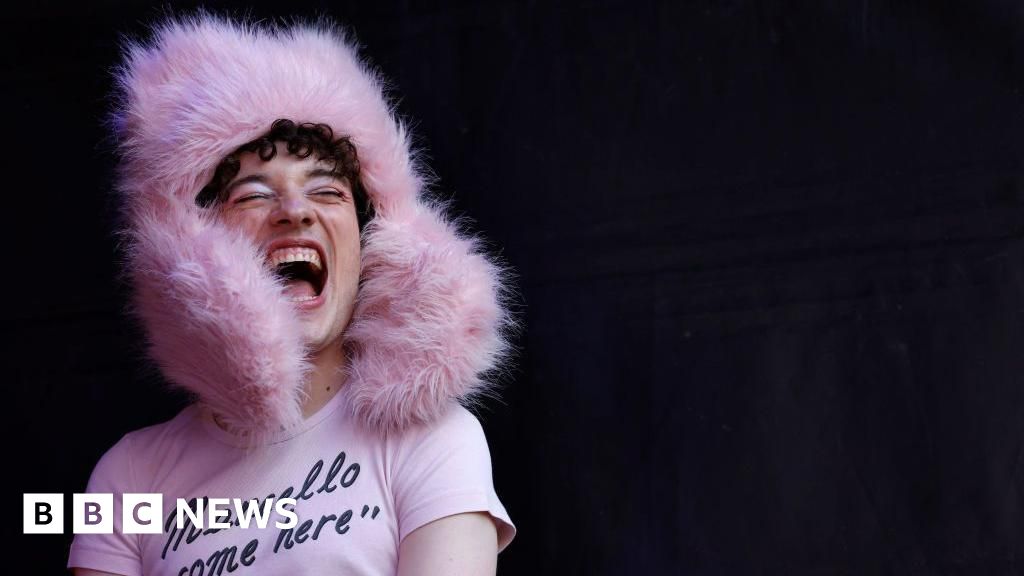ARTICLE AD BOX
13 minutes ago
Mark Savage,Music correspondent

 Getty Images
Getty Images
CMAT played at Big Weekend shortly after being nominated for best album at the Ivor Novello Awards
Singer-songwriter CMAT says the BBC has disabled comments on a video of her performing at Radio 1's Big Weekend, after she received abusive messages about her weight.
The Instagram clip showed the Irish star ripping off her shirt to reveal a more tight-fitting outfit during her set on Sunday afternoon.
Writing on social media, CMAT said the comments had been turned off "because so many people were calling me fat".
"I didn't realise it was illegal to have a huge ass!" she wrote.
"I am guilty as charged. It is time to lock me up and throw away the key.
"By the way, I am an award-winning songwriter that has released two albums which were received to ‘universal acclaim’," she added.
The country-pop singer, whose real name is Ciara Mary-Alice Thompson, was nominated for best album at last week's Ivor Novello Awards and best international artist at the Brit Awards in March.
She said a second video, filmed during the Brits ceremony, had also gone viral on South American TikTok - "and now people are calling me fat in Spanish".

 PA Media
PA Media
The singer played in the New Music Tent at Radio 1's Big Weekend in Luton
However, other videos of her Big Weekend performance have been positively received.
"Love of my life, light of my universe," wrote one fan under a clip of the song Aw, Shoot on YouTube.
"What an icon and what a voice, what a talent," added another.
BBC Radio 1 has not responded to a request for comment on this story.
Personal abuse
However, it is not the first time the BBC has had to police comments on clips from music festivals.
Last summer, BBC 6 Music deleted a video of indie singer Billy NoMates performing at Glastonbury following a barrage of criticism.
“The level of personal abuse on BBC 6 Music socials for goin[g] to work today is insane," she wrote on her Instagram page. "I’ve asked for all footage to be removed."
“I know it’s not for everyone what I do," she continued. "I know lots of people don’t rate me. But the level of personal abuse on that public page is too much."
The musician, real name Tor Maries, received messages of support from artists such as Billy Bragg, the Anchoress and Lonelady, who criticised the sexist and misogynist nature of the comments.
Partly in response to that incident, 6 Music recently launched an initiative called Change The Tune, aimed at combatting online abuse.
It included a "code of conduct" for people commenting on its social media pages.
The guidelines discourages users from posting if they don't like the music, and includes a no-tolerance policy for discrimination based on disability, gender, race, religion, or sexuality.
Allow Instagram content?
This article contains content provided by
. We ask for your permission before anything is loaded, as they may be using cookies and other technologies. You may want to read
and
before accepting. To view this content choose
‘accept and continue’.
The programme followed a report by the Musicians Union and Help Musicians, which said one third of women in the music industry have been sexually harassed at work, with many reporting it as a barrier to their career.
Women are also eight times more likely to face discrimination than men, the report suggested.
Last year, a similar report said that 30 per cent of musicians in the UK reported suffering from low mental wellbeing.

 Getty Images
Getty Images
Victoria Beckham recently said comments about her weight had affected her confidence.
Female artists, in particular, face constant comments about their weight and appearance.
Earlier this week, Victoria Beckham said that tabloid coverage of her figure after having her first child in 1999 made her anxious about going out in public.
“I never want to look like I’m complaining, but there were times in the past that I haven’t felt confident enough to sit on a beach and watch my children play,” she told Grazia.
“I remember after I had Brooklyn, my first outing was on the front page of the newspaper, with arrows pointing to where I needed to lose weight.”
“Those things can affect how you feel and conduct yourself in public."
Although newspapers and magazines have (largely) dialled back this sort of body-shaming in recent years, similar comments are still made online every day.
Jorja Smith was moved to address the issue last year, after hundreds of people criticised her appearance in the music video for Little Things (Remix).
"There’s loads of talk about my weight, which is actually crazy," she told The Guardian.
"Because, right, I’m 26. I’m not 18. I’ve never ever been super skinny – I’ve been slimmer, but I’ve also been younger, and a kid."
She continued: "Things change, don’t they, with your body? … I’m like, damn, I feel a bit insecure about it and now people are commenting on it."
'Misogynistic and boring'
However, the star added that she was determined not to let the comments affect her.
"I have to think, ‘What are they going through?’ No one’s ever said anything in person, never. It’s very interesting," she said.

 Getty Images
Getty Images
Jorja Smith says people write comments online that they'd never express in public.
And pop star Charli XCX also noted that she faced criticism for not appearaing on the cover of her upcoming album, Brat.
When she revealed the artwork - a neon green background with the word brat superimposed in black - some fans accused her art director of "going on strike".
Charli tweeted in response: “I think the constant demand for access to women’s bodies and faces in our album artwork is misogynistic and boring".
Expanding on that thought, she told Rolling Stone that the cover was intentionally stark and in-your-face.
"I’m trying to make you look at yourself and wonder why it bothers you so much that my face isn’t on the cover? What does that say about pop culture that that is so bothersome to you? What does that say about what you expect from your artists?" she said.
"There are so many conversations that my album cover opens up, and in my opinion they’re more interesting conversations than, ‘Oh my God, look how hot she looks'."

 11 months ago
53
11 months ago
53








 English (US) ·
English (US) ·